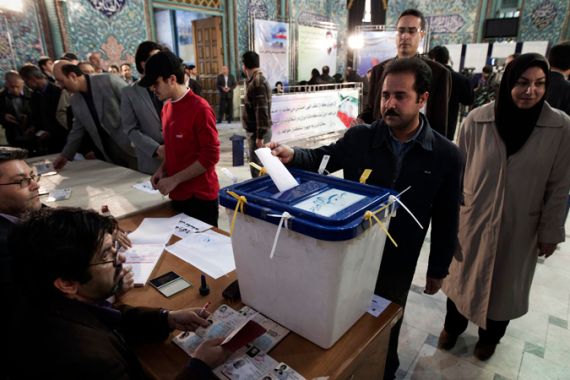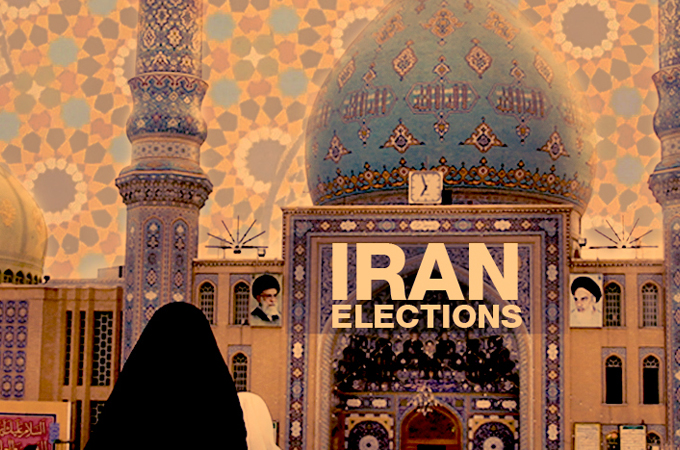Iranians vote in legislative elections
Country’s voters going to polls in elections seen as battle between conservatives factions and gauge of popular mood.

Polls in Iran’s legislative elections will remain open for an additional two hours on Friday, in the country’s first national vote since the disputed presidential elections in 2009 that ignited extensive protests against President Mahmoud Ahmadinejad.
Turnout in Friday’s election for the 290-seat Islamic Consultative Assembly has been watched closely by authorities, because it is considered an important indicator of how much of the country backs the conservatives, who dominated the outgoing assembly.
 |
| Click here to see our spotlight on the elections |
A high turnout could also provide a boost for a government under tremendous pressure, both domestically and internationally. Unemployment remains high, and international sanctions over the country’s nuclear programme have further increased economic pressure.
Iran’s supreme leader Ayatollah Ali Khamenei was the first to cast his vote as the polls opened.
“I believe this is a duty for us, and a right. We should exercise our right and carry out our duty,” he said after casting his ballot.
With the virtual absence of the reformist coalition from the race, analysts believe the election has turned into a contest between factions within the increasingly divided conservatives.
Al Jazeera’s Dorsa Jabbari, reporting from the capital Tehran, said: “The people that have come out this morning in this polling station in northern Tehran say it is the their absolute duty to vote. They will carry out what the supreme leader wants.
Opposition absent
“The absence of the opposition in the ballot is something that has not gone unnoticed. The movement has boycotted these elections because they have virtually been excluded from political life in this country since the 2009 presidential elections,” she said.
While the results will not have much impact on foreign policy, it will determine the balance of power as tensions have escalated between the camps loyal to Khamenei and Ahmadinejad.
“The parliament has been traditionally very critical of Ahmadinejad. It is very important for this president to maintain some sense of power over the legislative body in his last year in office,” our correspondent said.
Human rights organisations raised concerns about the government’s crackdown on dissent before the vote.
Amnesty International said the country had “dramatically” intensified crackdown on freedom of speech through a wave of arrests.
Human Rights Watch said on Thursday the country’s parliamentary elections would be grossly unfair because of arbitrary disqualifications and other restrictions.